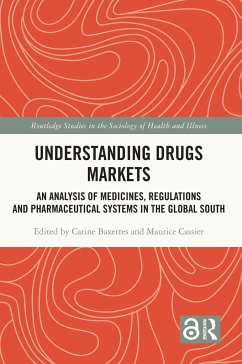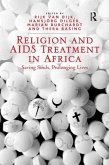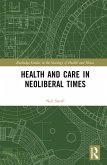Drawing on anthropology, historical sociology and social-epidemiology, this multidisciplinary book investigates how pharmaceuticals are produced, distributed, prescribed, (and) consumed, and regulated in order to construct a comprehensive understanding of the issues that drive (medicine) pharmaceutical markets in the Global South today.
Based on primary research conducted in Benin and Ghana, and additional data collected in Cambodia and the Ivory Coast, this volume uses artemisinin-based combination therapies (ACTs) against malaria as a central case study. It highlights the influence of the countries colonial and post-colonial history on their models for state regulation, production, and distribution, explores the determining role transnational actors as well as industries from the North but also and increasingly from the South play in influencing local pharmaceutical markets and looks at the behaviour of health care professionals and individuals. Stepping back, the authors then unpick the pharmaceuticalization process and the multiple regulations at stake by looking at the workings of, and linkages between, (biomedical health) pharmaceutical systems, (representatives of companies) industries, actors in private distribution, and consumer practices.
Providing a thorough comparative analysis of the advantages and disadvantages of different pharmaceutical systems, it is an important contribution to the literature on pharmaceutalization and the governance of medication. It is of interest to students, researchers and policy-makers interested in medical anthropology, the sociology of health and illness, global health, healthcare management and pharmacy.
The Open Access version of this book, available at http://www.taylorfrancis.com/books/9780429329517, has been made available under a Creative Commons Attribution-Non Commercial-No Derivatives 4.0 license.
Based on primary research conducted in Benin and Ghana, and additional data collected in Cambodia and the Ivory Coast, this volume uses artemisinin-based combination therapies (ACTs) against malaria as a central case study. It highlights the influence of the countries colonial and post-colonial history on their models for state regulation, production, and distribution, explores the determining role transnational actors as well as industries from the North but also and increasingly from the South play in influencing local pharmaceutical markets and looks at the behaviour of health care professionals and individuals. Stepping back, the authors then unpick the pharmaceuticalization process and the multiple regulations at stake by looking at the workings of, and linkages between, (biomedical health) pharmaceutical systems, (representatives of companies) industries, actors in private distribution, and consumer practices.
Providing a thorough comparative analysis of the advantages and disadvantages of different pharmaceutical systems, it is an important contribution to the literature on pharmaceutalization and the governance of medication. It is of interest to students, researchers and policy-makers interested in medical anthropology, the sociology of health and illness, global health, healthcare management and pharmacy.
The Open Access version of this book, available at http://www.taylorfrancis.com/books/9780429329517, has been made available under a Creative Commons Attribution-Non Commercial-No Derivatives 4.0 license.








